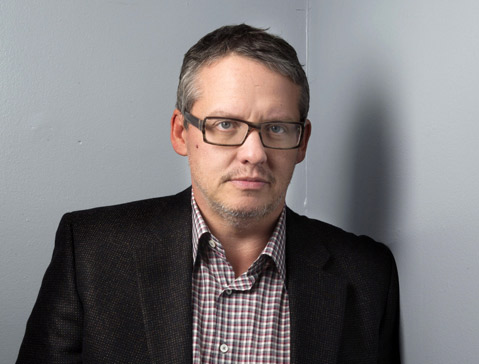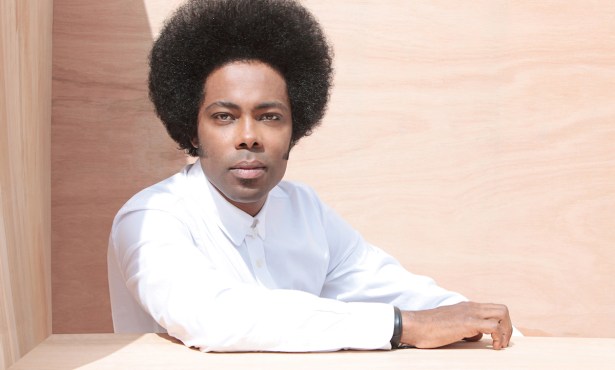SBIFF 2016: Adam McKay
Director to Receive the Outstanding Directors of the Year Award

In 2008, the global economy was rocked by an egregious Wall Street blunder that involved the creation of questionable subprime loans which led to the housing market bubble bursting — to summarize it in ridiculously simplistic terms. Eight years later, the financial institutions’ doublespeak explanations of the economic collapse and its cause have left many still wondering what the hell happened. In his gripping film The Big Short, director Adam McKay clearly lays out the big banks’ horrifically unscrupulous actions that precipitated the crash. The film is based on Michael Lewis’s best-selling book of the same name, and McKay, known primarily for helming satirical, ribald comedies starring Will Ferrell (Step Brothers, Talladega Nights, Anchorman), deftly brings this equally outrageous story to the screen with a sense of mission. I recently spoke over the phone with McKay about his multi-Academy Award–nominated film. Below is an extremely abbreviated version of our conversation.
Michael Lewis’s book The Big Short is a complicated story, and I thought you did a fantastic job of making it accessible. Did you find translating the book to the screen difficult? I was so excited by the book. Even though, yes, I agree, there were complicated elements to it, by the end I felt like I got the shape in a fairly clear way. I got it in a way that was so exciting; my goal was just to make sure a filmgoing audience was as excited as I was. I just knew it was a matter of, “How do you do it?” So then you look at the story, and you say, “Well, what do you need to do?” Because the story always tells you, and I was surprised when the answer was, “You need to break the fourth wall with this.” In this case, it was just screaming for it; this is a story where it’s all about looking behind the curtain. Once I hit on that, it was like, “Oh, all right; now there’s a spark going on.”
It’s a technique that can be jarring, but the fourth-wall breaks in your film were fluid. Oh, thank you. I think sometimes people see fourth-wall breaks and they’re afterthought fixes. In this case, the movie was built around the idea, and that’s why it didn’t jump out at people. We designed the movie around it, and I think that’s why you still feel that flow when you’re watching it.
This is a bit of a departure from your other films. How did you rein in your comedic bent? I never thought of it that way. You just start doing it, and you know, you’re cooking something, and you don’t really think, “Oh, I’m making tacos instead of an omelet?” I was just so excited by it and just felt like it needed to be made. That having been said, as far as the differences go, the biggest was that we just do loads of improv on the comedies, and we did not do nearly that much with this. There’s probably about a fifth as much, a sixth as much, improv on this one. So in some ways it was like everything just got a lot more subtle, and then because we weren’t improvising so much, [the days] weren’t quite as exhausting. [Chuckles.] Comedy is very tiring! Because your mind is working nonstop all day, especially as a writer/director, and kind of driving the improv, and the actors will tell you: They’re just as exhausted at the end of the day.
Have you had any blowback from this film by anybody in the finance world? These movies have a lifespan of like a year to two years, so I think the story’s about half done as far as the impact the movie’s going to have. I think we’re still in the middle of it. Once these movies go on cable and on-demand, millions more people see them, so I think in about a year and a half, two years, I can sit back and think, “Okay, what was the reaction to that movie?” But it’s definitely been intriguing so far, and we’re getting, like, really strong reactions from audiences, too.
In my opinion, the film is a call to arms to the audience. That’s why we made it, yeah! That’s definitely the intention. “Wake the fuck up,” and, “You’re getting screwed harder than you realize.” Jump into the game.



